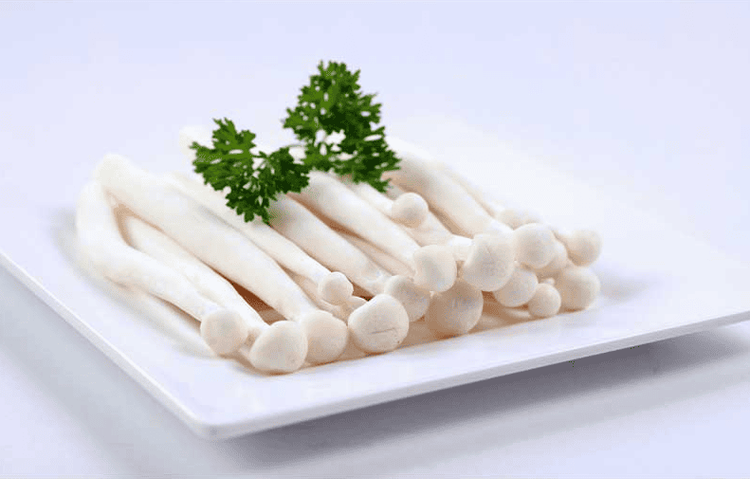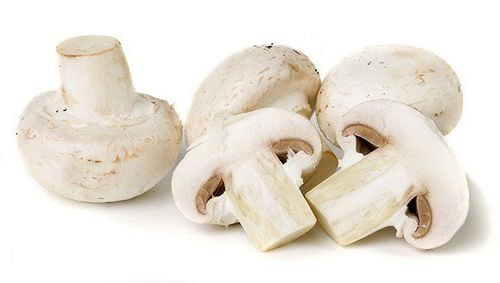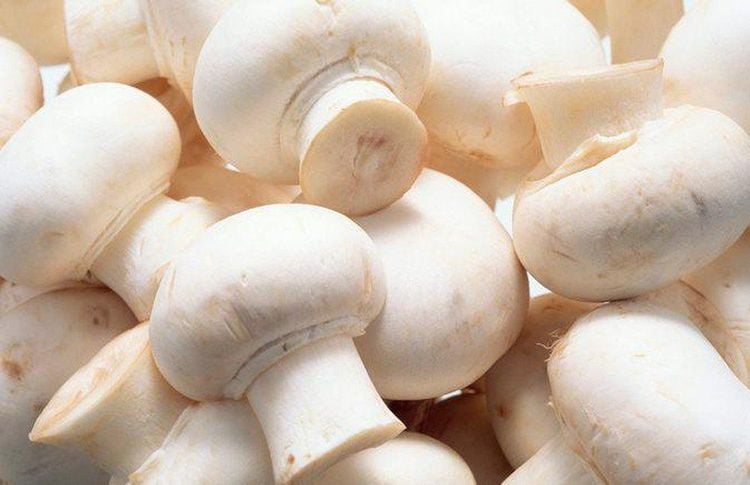There are many different types of mushrooms, among them white mushrooms are edible mushrooms and provide many necessary nutrients for the body. Here is what you need to know about this mushroom.
1. What are white Mushroom?
White mushrooms, scientifically known as Agaricus bisporus, are among the most widely cultivated mushrooms worldwide. In addition to being low in calories, they offer numerous health benefits, such as supporting heart health and potentially preventing cancer.
These mushrooms belong to the Agaricaceae family and can be harvested at various stages of growth, whether young or mature. They are charactXerized by their small stems, smooth caps, and delicate flavor, making them a versatile addition to many dishes.
White mushrooms grow in soil enriched with certain bacteria. These microorganisms break down nutrients in the soil, creating an aerated environment conducive to mushroom development.
White mushrooms are available in many forms, including fresh, frozen, dried, canned, or even powdered.
2. Nutritional Value and Benefits of White Mushrooms
White mushrooms are a staple in many diets due to their rich nutritional profile and health-enhancing properties.
2.1 Nutritional Content of White Mushrooms
Like most mushrooms, white mushrooms are low in calories but packed with essential nutrients for the body.

According to nutrition experts, 96 grams of white mushrooms provide:
- Calories: 21
- Carbohydrates: 3 grams
- Fiber: 1 gram
- Protein: 3 grams
- Fat: 0 grams
- Vitamin D: 33% of daily recommended intake
- Selenium: 16% of daily recommended intake
- Phosphorus: 12% of daily recommended intake
- Folate: 4% of daily recommended intake
White mushrooms naturally contain vitamin D2 due to exposure to UV light. This plant-based form of vitamin D can raise blood levels of vitamin D2, which the body converts to its active form. This process aids in calcium absorption, promoting strong bones. A deficiency in vitamin D can lead to osteoporosis, mineral deficiency, and muscle weakness.
Additionally, white mushrooms provide vitamin B12, typically found in animal-based foods, making them a valuable nutrient source for those following a vegetarian diet.
Moreover, white mushrooms contain more protein than most vegetables, making them a helpful protein supplement in meals.

2.2 Health Benefits of White Mushrooms
White mushrooms are a popular addition to meals due to their nutritional value and positive health effects.
2.2.1 Cancer Prevention
White mushrooms are rich in antioxidants, including polyphenols, polysaccharides, ergothioneine, glutathione, selenium, and vitamin C. These compounds have been shown to help reduce the occurrence of cancer cells.
They also help slow down aging and lower the risk of cardiovascular diseases.
2.2.2 Improved Heart Health
High levels of cholesterol and triglycerides are closely linked to cardiovascular diseases. White mushrooms contain ergothioneine and beta-glucan, which may reduce these risks.
- Beta-glucan, a soluble fiber, reduces blood cholesterol levels by forming a gel-like substance during digestion. This gel binds cholesterol and triglycerides, preventing their absorption into the bloodstream.
- Ergothioneine can lower post-meal triglyceride levels. In a study involving 10 male participants, consuming 8–16 grams of mushroom powder per meal significantly reduced blood triglyceride levels compared to a control group. Ergothioneine may also inhibit plaque buildup in arteries, reducing cardiovascular risks.

3. How to Use White Mushrooms
White mushrooms are available in various forms, including fresh, frozen, canned, dried, and powdered, making them versatile for culinary use.
- Fresh Mushrooms: These have a short shelf life of 3–4 days. Freezing, canning, or drying are better options for long-term storage without compromising nutritional quality.
- Cooking Methods: Fresh or dried mushrooms can be cooked or eaten raw, both offering delicious flavors. Dried mushrooms may need soaking before cooking.
- Preserved Mushrooms: Frozen or canned mushrooms are often seasoned, providing varied options to suit individual tastes.
- Powdered Mushrooms: This form is primarily used to enhance the nutritional content of dishes, particularly for boosting protein levels in baked goods.
White mushrooms are a nutrient-dense food containing numerous bioactive compounds that offer significant health benefits, including cancer prevention, cholesterol reduction, and improved gut health. They are also high in protein but low in calories, making them a valuable addition to daily meals to enhance both flavor and nutrition.
To schedule an appointment, please call our HOTLINE or book online HERE. Download the MyVinmec app to manage, track, and schedule appointments anytime, anywhere.













